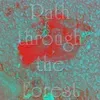Avant-garde Live Radio Stations
Radio Stations
- _80s_Radio_80s_Radio
- Açık Radyo

- Adroit Jazz UndergroundAdroit Jazz Underground
- Avant-Garde Jazz/Free Improvisation - Radio CapriceAvant-Garde Jazz/Free Improvisation - Radio Capric...
- Avant-Prog/Rock in Opposition/Canterbury Scene/Zeuhl - Radio CapriceAvant-Prog/Rock in Opposition/Canterbury Scene/Zeu...
- Concertzender X-RatedConcertzender X-Rated
- Experimental/Avant-garde music - Radio CapriceExperimental/Avant-garde music - Radio Caprice
- Hong Kong Community Radio

- laut.fm Freakout

- laut.fm Freakout

- laut.fm jradio

- Path through the Forest

- Radio NABA

- Rockserwis.fmRockserwis.fm
- sfSoundRadio

- SomaFM Sonic Universe 128k AAC+

- SomaFM Sonic Universe 64k AAC+

- The Tube | NTS

- WFMU UbuRadio

Choose a Genre
Avant-Garde Radio: Exploring the Boundaries of Sound and Structure
Avant-garde music is often regarded as one of the most innovative and boundary-pushing genres in the music world. Embracing experimental sounds, unconventional structures, and an open-minded approach to composition, the avant-garde genre challenges the very notion of what music can be. For those who seek an auditory experience that breaks away from the norm, avant-garde radio stations provide a platform to explore the cutting-edge of contemporary music, offering a space for listeners to discover the most daring and creative works being produced today.
What is Avant-Garde Music?
At its core, avant-garde music is defined by its experimental and often unconventional approach to sound and structure. Unlike traditional genres that adhere to familiar musical forms and conventions, avant-garde artists often reject these norms, opting instead for unpredictable compositions, abstract sounds, and new techniques. Whether it’s through free jazz, electronic music, experimental rock, noise, or musique concrète, avant-garde music pushes the limits of what is traditionally considered “music.”
One of the defining features of avant-garde music is its emphasis on improvisation and spontaneity. Many avant-garde composers and performers steer clear of structured, predictable arrangements, instead favoring open-ended pieces that allow for creative freedom and exploration. This gives rise to a vast and diverse range of sounds, from the chaotic and abrasive to the deeply introspective and meditative.
The Role of Avant-Garde Radio Stations
Avant-garde radio stations play a crucial role in bringing this unconventional and experimental genre to the forefront. These stations are dedicated to showcasing the latest works from the most innovative artists around the world. With their commitment to pushing the boundaries of musical exploration, avant-garde stations offer a platform where listeners can discover new and exciting sounds that might otherwise be overlooked by more mainstream media.
Unlike commercial radio stations, which often prioritize mass appeal and popular trends, avant-garde radio stations offer a refreshing alternative by focusing on the unconventional and the unknown. These stations often feature live performances, rare recordings, and experimental works from pioneers in the avant-garde movement, giving listeners an intimate and immersive experience with cutting-edge music.
A Diverse Range of Styles and Subgenres
The beauty of avant-garde music lies in its vast diversity. Avant-garde radio stations feature a wide variety of subgenres, ensuring that listeners have access to the full spectrum of experimental music. Some of the most common styles heard on these stations include:
Free Jazz: A genre known for its unstructured, improvisational nature, where musicians explore dissonant and unconventional harmonies, rhythms, and melodies.
Experimental Rock: A form of rock music that experiments with sound, structure, and instrumentation, often challenging traditional rock conventions.
Noise Music: A genre that emphasizes dissonance, harsh sound textures, and non-traditional sound sources.
Musique Concrète: A style of electronic music that uses recorded sounds as raw material, manipulating them to create entirely new compositions.
Electronic: Avant-garde electronic music pushes the boundaries of digital sound, often incorporating abstract beats, glitch effects, and non-traditional production techniques.
By featuring these diverse styles, avant-garde radio stations create a rich and varied listening experience that appeals to those who are eager to explore new forms of music and sound.
Discovering New Artists and Sounds
One of the key benefits of avant-garde radio is the opportunity it provides to discover new and exciting artists. In an industry often dominated by mainstream pop and commercial genres, avant-garde music offers a refreshing contrast by giving voice to lesser-known artists and experimental musicians. These artists often defy categorization, blending various genres and techniques to create entirely new sonic landscapes.
Avant-garde radio stations serve as a crucial resource for listeners who want to stay on the cutting edge of music and discover artists who may not receive attention from traditional media outlets. Whether it’s a small independent artist or an established icon of experimental music, these stations expose listeners to sounds and compositions that are challenging, thought-provoking, and unlike anything heard on mainstream radio.
Interviews, Discussions, and Spoken Word Performances
In addition to music, avant-garde radio stations often feature a range of spoken word performances and discussions about the genre’s latest developments. These stations may include interviews with avant-garde artists, giving listeners insight into the creative processes and philosophies behind their work. These interviews are often accompanied by discussions about trends within the avant-garde scene, the history of experimental music, and the cultural impact of the genre.
Many avant-garde stations also feature spoken word performances and sound art installations, which further enhance the station’s commitment to exploring the boundaries of audio expression. These performances may include experimental poetry, sound collages, and audio experiments that defy traditional conceptions of what music and sound art can be.
Conclusion
Avant-garde radio stations offer an unparalleled listening experience for anyone curious about the future of music. By embracing innovation, experimentation, and unconventional structures, these stations give listeners access to a rich and diverse world of sound that challenges the status quo. Whether you're a seasoned aficionado of experimental music or simply intrigued by the possibilities of sound, avant-garde radio offers an exciting and dynamic platform for discovering the cutting edge of contemporary music.
Avant-garde music is often regarded as one of the most innovative and boundary-pushing genres in the music world. Embracing experimental sounds, unconventional structures, and an open-minded approach to composition, the avant-garde genre challenges the very notion of what music can be. For those who seek an auditory experience that breaks away from the norm, avant-garde radio stations provide a platform to explore the cutting-edge of contemporary music, offering a space for listeners to discover the most daring and creative works being produced today.
What is Avant-Garde Music?
At its core, avant-garde music is defined by its experimental and often unconventional approach to sound and structure. Unlike traditional genres that adhere to familiar musical forms and conventions, avant-garde artists often reject these norms, opting instead for unpredictable compositions, abstract sounds, and new techniques. Whether it’s through free jazz, electronic music, experimental rock, noise, or musique concrète, avant-garde music pushes the limits of what is traditionally considered “music.”
One of the defining features of avant-garde music is its emphasis on improvisation and spontaneity. Many avant-garde composers and performers steer clear of structured, predictable arrangements, instead favoring open-ended pieces that allow for creative freedom and exploration. This gives rise to a vast and diverse range of sounds, from the chaotic and abrasive to the deeply introspective and meditative.
The Role of Avant-Garde Radio Stations
Avant-garde radio stations play a crucial role in bringing this unconventional and experimental genre to the forefront. These stations are dedicated to showcasing the latest works from the most innovative artists around the world. With their commitment to pushing the boundaries of musical exploration, avant-garde stations offer a platform where listeners can discover new and exciting sounds that might otherwise be overlooked by more mainstream media.
Unlike commercial radio stations, which often prioritize mass appeal and popular trends, avant-garde radio stations offer a refreshing alternative by focusing on the unconventional and the unknown. These stations often feature live performances, rare recordings, and experimental works from pioneers in the avant-garde movement, giving listeners an intimate and immersive experience with cutting-edge music.
A Diverse Range of Styles and Subgenres
The beauty of avant-garde music lies in its vast diversity. Avant-garde radio stations feature a wide variety of subgenres, ensuring that listeners have access to the full spectrum of experimental music. Some of the most common styles heard on these stations include:
Free Jazz: A genre known for its unstructured, improvisational nature, where musicians explore dissonant and unconventional harmonies, rhythms, and melodies.
Experimental Rock: A form of rock music that experiments with sound, structure, and instrumentation, often challenging traditional rock conventions.
Noise Music: A genre that emphasizes dissonance, harsh sound textures, and non-traditional sound sources.
Musique Concrète: A style of electronic music that uses recorded sounds as raw material, manipulating them to create entirely new compositions.
Electronic: Avant-garde electronic music pushes the boundaries of digital sound, often incorporating abstract beats, glitch effects, and non-traditional production techniques.
By featuring these diverse styles, avant-garde radio stations create a rich and varied listening experience that appeals to those who are eager to explore new forms of music and sound.
Discovering New Artists and Sounds
One of the key benefits of avant-garde radio is the opportunity it provides to discover new and exciting artists. In an industry often dominated by mainstream pop and commercial genres, avant-garde music offers a refreshing contrast by giving voice to lesser-known artists and experimental musicians. These artists often defy categorization, blending various genres and techniques to create entirely new sonic landscapes.
Avant-garde radio stations serve as a crucial resource for listeners who want to stay on the cutting edge of music and discover artists who may not receive attention from traditional media outlets. Whether it’s a small independent artist or an established icon of experimental music, these stations expose listeners to sounds and compositions that are challenging, thought-provoking, and unlike anything heard on mainstream radio.
Interviews, Discussions, and Spoken Word Performances
In addition to music, avant-garde radio stations often feature a range of spoken word performances and discussions about the genre’s latest developments. These stations may include interviews with avant-garde artists, giving listeners insight into the creative processes and philosophies behind their work. These interviews are often accompanied by discussions about trends within the avant-garde scene, the history of experimental music, and the cultural impact of the genre.
Many avant-garde stations also feature spoken word performances and sound art installations, which further enhance the station’s commitment to exploring the boundaries of audio expression. These performances may include experimental poetry, sound collages, and audio experiments that defy traditional conceptions of what music and sound art can be.
Conclusion
Avant-garde radio stations offer an unparalleled listening experience for anyone curious about the future of music. By embracing innovation, experimentation, and unconventional structures, these stations give listeners access to a rich and diverse world of sound that challenges the status quo. Whether you're a seasoned aficionado of experimental music or simply intrigued by the possibilities of sound, avant-garde radio offers an exciting and dynamic platform for discovering the cutting edge of contemporary music.